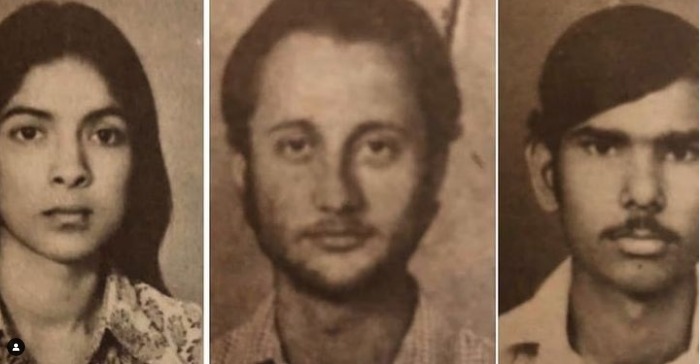Review of the film Ek Deewane ki Deewaniyat: After watching “Ek Deewane Ki Deewaniyat” for a few hours, I’m still in shock that Bollywood is still producing these movies in 2025. In contrast to the typically very empty theaters I see on the first day of a film’s release, my show was almost full, and I had heard about the excitement around the movie. And I felt I was in for something new and welcoming when it began, with Harshvardhan Rane and Sonam Bajwa getting down to a romantic tangle. But I was completely mistaken.
When he meets the attractive actress Adaa (Sonam Bajwa), Vikramaditya Bhonsle (Harshvardhan Rane) portrays an obsessive lover who cannot accept no as an answer, even if he hears it every time. He moves forward, she retreats, and the plot, if it exists at all, serves primarily to produce non-meet-cute moments.
Does this group truly believe that falling in love is this risky and out-of-date load of clichés? When Vikramaditya sees Adaa going down a red carpet, he extends his hand and she accepts it. That unintentional clasping is the clue that he is in love, regardless of who knows it. Shaad Randhawa, his best friend, watches in confusion as Vikram continues to circle around the obviously hesitant Adaa, pushing whenever he can while disregarding her strong objections, which quickly escalate into active hostility.
All the deewaniyat, deewanapan, hadd paar ka jaana, mohabbat mein fanaa ho jaana — well, the last one’s mine, but you get the idea. He hectors and smiles, sheds a ready tear (I haven’t seen a leading man cry as much as this one does), and spouts lyrical speech.
Aside from a manager and assistant, she doesn’t appear to have a protective entourage or even a publicist to help her deal with stalkers like Vikramaditya, who inherited his idea that everything he wants is his from his tough politician father (Sachin Khedekar). Her mother, younger sister, and father (Ananth Mahadevan) are initially supportive, but even they start to falter under the constant pressure.
The movie just serves to establish a blatant red flag as a “hero” in spite of the sighs and the songs. Halfway through, the “heroine” makes a ridiculous proposal that is supposed to be shocking; perhaps it would have been if the entire situation hadn’t been so shocking in the first place.
The message conveyed by this film is that a woman who has been refusing for 99 percent of the film can be harassed and confronted to agree. even now. Where are you when we need you most, woke people?
The most disheartening aspect? Bollywood keeps bringing back the horribly regressive misogynistic toxicity of the Darrs, Anjaams, Tere Naams, reinforcing the perilous notion that one-sided obsession is a perfectly acceptable emotion that can intimidate and beat the skeptic into submission. No means No—whatever happened to it?




You must be logged in to post a comment.